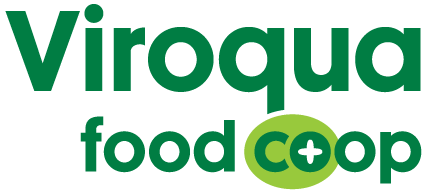Fairtrade Coffee
Jen McCoy, Marketing and Outreach Manager
In 2004, I had the opportunity to travel to Northern Nicaragua to learn about Fairtrade. I was part of a delegation of retail co-op workers from around the United States brought together by Equal Exchange Coffee Cooperative. Here, I learned firsthand how Fairtrade works to bring equity and dignity to farmers and villages in developing countries while providing high-quality products to consumers.
On this journey, we spent a few days learning about the country's economy and challenges in Managua, the capital. We then went to a mountain village outside Matagalpa, where we learned about Fairtrade.
We traveled into the mountains on dirt roads to reach our destination, a co-op of coffee farmers found in the shady forest region. Our host family had no running water or electricity. We slept on pallets on the floor. We climbed the hillside to harvest coffee cherries by hand alongside our host. Then, we sorted out the rotten cherries and removed the pulp from the seed. The seed is the coffee bean that is dried and roasted before brewing.
While we worked and visited, we learned about the coffee farmers and the cooperative they belonged to, the conditions they faced before they began working through Fairtrade and how Fairtrade changed their lives.
Segundo, our host, told us that before Fairtrade, they would plant and grow coffee but had no reliable way to sell it. During harvest, they would look for trucks to come through their village to buy coffee beans. The farmers did not know when they were coming, the price they would get for their beans or even if their coffee beans would be sold. With a lack of infrastructure, they were at the mercy of middlemen to get their products sold.
Now, with connections made through Fairtrade, these trade barriers are removed. The security of having a stable market and a guaranteed price to sell their coffee is life-changing for small farmers. The direct business partnerships that Fairtrade supports help small farmers in developing countries plan for the future.
Farmers in the region are organized into coffee co-ops responsible for planting, growing and harvesting the coffee. They also belong to a secondary centralized co-op, CECOCAFEN. This co-op represents 2,600 farmer families from twelve community based cooperatives. CECOCAFEN buys the coffee beans to dry, sort and package. They also have an export license to ship the coffee beans. Direct trade through cooperatives keeps profits in farmers' hands and helps to build the local and regional economy.
CECOCAFEN supports local development of their communities through eco-tourism initiatives, a microlending program for women entrepreneurs, youth education scholarships and many social and cultural activities. They sell directly to Equal Exchange, who sells finished coffee to retail cooperatives and church groups around the United States. As the trade relationship between all of these co-ops evolve, farmers can get help with quality issues and certification paperwork and processes for organic production. This results in high quality coffee for the consumer and environmental protection for the region.
The system of Fairtrade works at every level. Not all Fairtrade organizations work through co-ops like the one I experienced. Still, they all aim to positively impact developing countries' social, economic, and environmental landscape while bringing equity and dignity to trade.
While the agreed-upon Fairtrade price help farmers plan ahead, the Fairtrade Premium helps transform communities. Farmer groups vote to decide what to do with the Fairtrade Premium (in 2004, 2 or 3 cents per pound of coffee beans sold). For example, in the village that welcomed me, Premiums were used to build the infrastructure needed to bring fresh water from the mountain top to the village and to fix a decaying school structure so it was safe for kids.
When I left my mountain stay in Northern Nicaragua, Segundo said, "We are now friends, and friends help each other out. Please tell your friends in the States our story and encourage them to support Fairtrade. It makes all the difference for our community." I have told their story ever since.
The Viroqua Food Co+op carries Fairtrade coffee, chocolate, bananas, avocado, olive oil, baskets, nuts, tea, wine, sugar and more! All of the coffee brands at VFC are ethically sourced.


